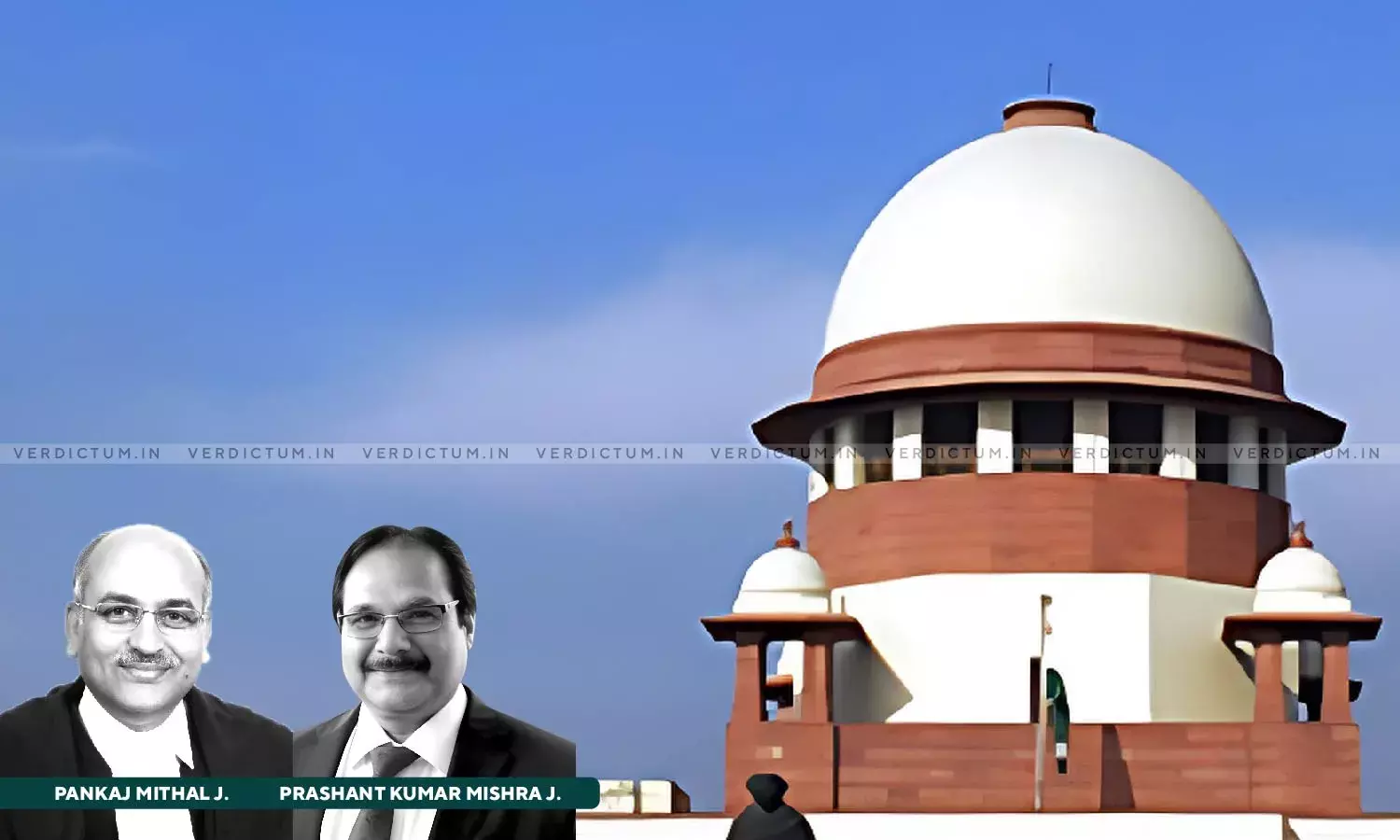Power Of Attorney Holder Can Only Depose About Facts Within His Personal Knowledge: Supreme Court

The Supreme Court reiterated that the Power of Attorney holder can only depose about the facts within his personal knowledge and not about those facts which are not within his knowledge.
The Court said thus in a batch of appeals in which the dispute was in connection with easementary rights over 20 ft. wide road situated over a land.
The two-Judge Bench comprising Justice Pankaj Mithal and Justice Prashant Kumar Mishra observed, "It is, therefore, settled in law that Power of Attorney holder can only depose about the facts within his personal knowledge and not about those facts which are not within his knowledge or are within the personal knowledge of the person who he represents or about the facts that may have transpired much before he entered the scene."
Senior Advocate Huzefa Ahmadi appeared for the appellants while Advocate Devansh Anoop Mohta appeared for the respondents.
Brief Facts -
A suit was instituted by the descendants of the subsequent purchaser which was for declaration of their easementary rights over the 20ft. wide road situated in a property and for permanent injunction in respect thereof. The suit was decreed by the court of first instance, however, the judgment and decree was set aside in appeal by the Ad-hoc District Judge-2, Raigad, and the suit was dismissed. The High Court upheld the said judgment and order of the appellate court and apart from the above suit, another suit was filed for declaring that the predecessor-in-interest have no right, title and interest in the property and they do not have any right of way through the said land.
The aforesaid suit was dismissed by the court of first instance i.e. Civil Judge, Junior Division, Murud and on the appeal being preferred, the judgment and order passed by the court of first instance was set aside and the suit was decreed holding that the predecessor-in-interest have no right of way either by easement of prescription or of necessity on the suit land/road. They were restrained from disturbing the possession over the suit land and from doing any overt act over it. Aggrieved by the dismissal of their suit, two appeals were preferred by them. Their predecessor-in-interest did not join and preferred any separate appeal. Meaning thereby, that the original plaintiff accepted the verdict of the High Court.
The Supreme Court after hearing the arguments from both sides noted, “The easementary right by necessity could be acquired only in accordance with Section 13 of the Act which provides that such easementary right would arise if it is necessary for enjoying the Dominant Heritage. In the instant case, findings have been returned not only by the appellate courts but even by the trial court that there is an alternative way to access the Dominant Heritage, which may be a little far away or longer which demolishes the easement of necessity. There is no justification to go into those findings of fact returned by the courts below.”
The Court held that the predecessor-in-interest are not entitled to any easementary right by necessity upon the disputed rasta. Furthermore, the Court took note of the fact that the situation in the case is quite different as the property owned and possessed by the predecessor-in-interest was originally the property of another which was acquired by the government.
“The said Sale Deed dated 17.09.1994 in original has not been produced in evidence. It was only the photocopy of the same which was brought on record. The photocopy of a document is inadmissible in evidence. Moreover, the said sale deed was executed by predecessor-in-interest i.e. Joki Woler Ruzer in favour of predecessor-in-interest of the present Gala’s. The said sale deed would not bind the third parties who are not signatories or parties to the said sale deed. No evidence has been adduced to prove that Joki Woler Ruzer, predecessor-in-interest of the Gala’s, had perfected easementary rights over the disputed rasta and thus was legally entitled to transfer the same. He himself has not come before the Court that he had actually acquired any easementary right in the disputed rasta”, it remarked.
“It is not the case of Gala’s that their predecessor-in-interest had acquired or purchased the said property from government auction with any easementary right over the rasta in dispute. Thus, the Gala’s have failed to prove that they have acquired any easementary right under the sale deed. … the Gala’s cannot acquire easementary right as is enjoyed by Dharmadhikari whose case stand on a totally different footing”, it also held.
The Court, therefore, concluded that the first appellate court is empowered to exercise powers and to perform nearly the same duties as of the courts of original jurisdiction and hence, the first appellate court has the power to return findings of fact and law both and in so returning the finding, it can impliedly overturn the findings of the court of first instance if it is against the evidence on record or is otherwise based upon incorrect interpretation of any document or misconstruction of any evidence adduced before the court of first instance.
Accordingly, the Apex Court dismissed the appeals.
Cause Title- Manisha Mahendra Gala & Ors. v. Shalini Bhagwan Avatramani & Ors. (Neutral Citation: 2024 INSC 293)
Appearance:
Appellants: Advocates Mahesh Agarwal, Mahesh Agarwal, Rishi Agrawala, Ankur Saigal, Shashwat Singh, Vidisha Swarup, and AOR E. C. Agrawala.
Respondents: Advocates Devansh Anoop Mohta, Shishir Deshpande, Amit Yadav, Nilakanta Nayak, Kaushal Narayan Mishra, and AOR Sujata Kurdukar.


